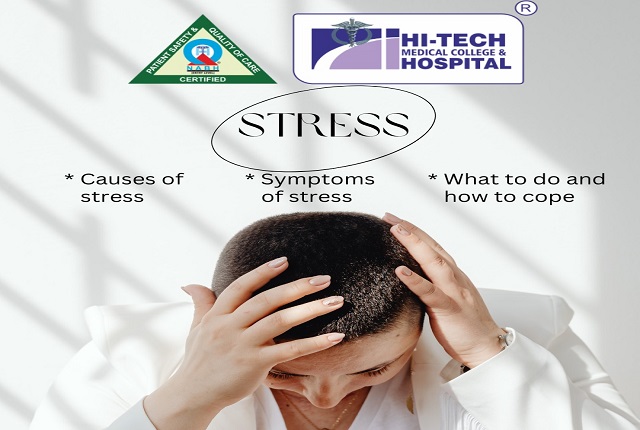In today’s fast-paced and demanding work environment, it is common for individuals to experience work-related stress. Whether it’s meeting tight deadlines, dealing with difficult colleagues, or managing a heavy workload, stress can have a significant impact on both our physical and mental well-being. As a result, learning how to effectively manage work-related stress is crucial for maintaining a healthy work-life balance. In this article, we will explore some valuable tips from medical professionals on how to manage work-related stress.
Understand the Impact of Stress on Your Health:
Before delving into specific strategies for managing work-related stress, it is important to understand the potential impact that stress can have on your health. Prolonged exposure to stress can lead to a variety of health problems, including high blood pressure, heart disease, and weakened immune function. Additionally, stress can also exacerbate existing conditions such as anxiety and depression. By recognizing the consequences of stress on your health, you can take proactive steps to address and mitigate its effects.
Tips to Manage Work-Related Stress:
1. Practice Mindfulness and Relaxation Techniques
One effective way to manage work-related stress is to incorporate mindfulness and relaxation techniques into your daily routine. Mindfulness involves being present in the moment and focusing on your thoughts and feelings without judgment. This practice can help reduce stress and promote a sense of calm and clarity. Techniques such as deep breathing, progressive muscle relaxation, and meditation can also help alleviate stress and tension.
2. Establish Healthy Work Habits
Creating healthy work habits can help prevent stress from accumulating in the first place. Prioritize tasks based on importance and deadlines, break larger projects into smaller, manageable tasks, and take regular breaks to recharge and refocus. It is also essential to set boundaries between work and personal life to avoid burnout. Establishing a healthy work-life balance is crucial for overall well-being.
3. Engage in Physical Activity
Regular physical activity is not only beneficial for your physical health but can also help reduce stress and improve your mood. Exercise releases endorphins, which are natural mood lifters that can help combat stress and anxiety. Whether it’s a brisk walk during your lunch break, a yoga session before or after work, or a gym workout, finding time to be physically active can significantly impact your stress levels.
4. Seek Support and Connection
Don’t hesitate to reach out for support when you are feeling overwhelmed by work-related stress. Talking to a trusted friend, family member, or mental health professional can provide valuable perspective and coping strategies. Building a strong support network can help you feel less isolated and better equipped to manage stress. Additionally, connecting with colleagues and engaging in social activities outside of work can also foster a sense of community and reduce feelings of stress.
5. Prioritize Self-Care
Self-care is essential for maintaining your well-being, especially in high-stress work environments. Make time for activities that bring you joy and relaxation, such as reading a book, taking a bath, practicing a hobby, or spending time in nature. Prioritizing self-care allows you to recharge and rejuvenate, making you better equipped to handle the demands of work.
6. Practice Time Management and Organization
Effective time management and organization are key skills for managing work-related stress. Prioritize tasks, set realistic goals, and create a schedule that allows for breaks and downtime. Utilize tools such as to-do lists, calendars, and time-tracking apps to help you stay organized and focused. By managing your time efficiently, you can reduce feelings of overwhelm and increase productivity.
Conclusion
While work-related stress is a common experience for many individuals, it is essential to take proactive steps to manage and mitigate its effects. By incorporating mindfulness and relaxation techniques, establishing healthy work habits, engaging in physical activity, seeking support and connection, prioritizing self-care, and practicing effective time management, you can effectively manage work-related stress and promote a healthier work-life balance. Remember that it is okay to ask for help when needed and prioritize your well-being above all else. Taking care of yourself is not only beneficial for your health but also enhances your professional performance and overall quality of life.
If you are in need of any medical help, Please Visit our Psychiatry Department here and Book a Consultation.

